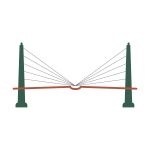Overview
Archive Urban History Digital Cultural Heritage OS Tools for data enrichment Apps / Interfaces for data visualization
The Archival City project is funded and supported by Isite Future, from the new Gustave Eiffel University. The core team of the project brings together historians, architects, geomaticians, archivists and documentalists.
ARCHIVAL-CITY aims to propose new ways of accessing, viewing and using the city archives. Therefore, it is slated to become a key resource for better understanding and exploiting urban archives, and also to imagine, debate and plan the city of the future by incorporating robust data from the past. It will serve as the bridge and communication link that was missing between those who are interested in the city’s past and those building its future. Used not only by researchers, historians and archivists, but also by local government, policy-makers and urban operators, as well as citizens eager to take part in their urban environment.
The heart of ARCHIVAL-CITY’s approach consists in questioning the concept of urban archives on an international scale. Six fields have been chosen, and for each, one major issue will be examined:
Algiers : the archives displaced due to a colonial context
Bologna : the very long-term archives
Chiang-Mai : the archives of the ordinary heritage of a city
Greater Paris : the archives of the metropolization process
Jerusalem : the diversity of languages and communities archived
Quito : the resilient archives facing urban disasters
The goal is not to add up the different fields, but to use them as starting points to think about how cities produce, sort, preserve, talk about and use – or not – their archives to address classic development issues.
The challenge of ARCHIVAL CITY is to develop a common culture and tools for the conservation, management and use of data from the past.
The need for a common method to describe and standardize archival holdings has emerged as an absolute necessity. All archives processed by ARCHIVAL CITY will be described according to the highest international archival description standards (ISAG, ISAR, etc.), thanks to the Open Source AtoM tool. AtoM thus represents the common base for all ARCHIVAL CITY experiences.
Concerning data visualisation, each project has its own specificities according to the research questions and issues of interest of the researchers involved. Some fields envisage 3D modelling of urban space, others technical service conformations over time, reconstitution of medieval archive collections, data design… We have therefore realized that a single visualization tool for all projects seemed impossible and even counter-productive. It will be a question, by relying on the expertise of Limonade, and by working in partnership with Huma-Num, of developing methods of data visualization as close as possible to the needs of each project.
In order to extend this common method of data description, we are currently developing the idea of founding an International Journal of Data Papers, specific to urban archives. Based on the Atom data reservoir, we wish to encourage the production of scientific articles presenting the methods of extracting data from archives. We believe that it would allow a better knowledge of urban archives, a better conservation and a better use by researchers from all disciplines and urban actors. This journal would represent the achievements of Open Jerusalem and Archival City in the development of these methods of archival description and treatment.
Project partners
Lead partners
Other partners
- Centre de recherche français à Jérusalem
- Ecole d'architecture Paris-Belleville
- Andean University Simon Bolivar
- Latin American Faculty of Social Sciences
- University of San Francisco
- Chiang Mai University
